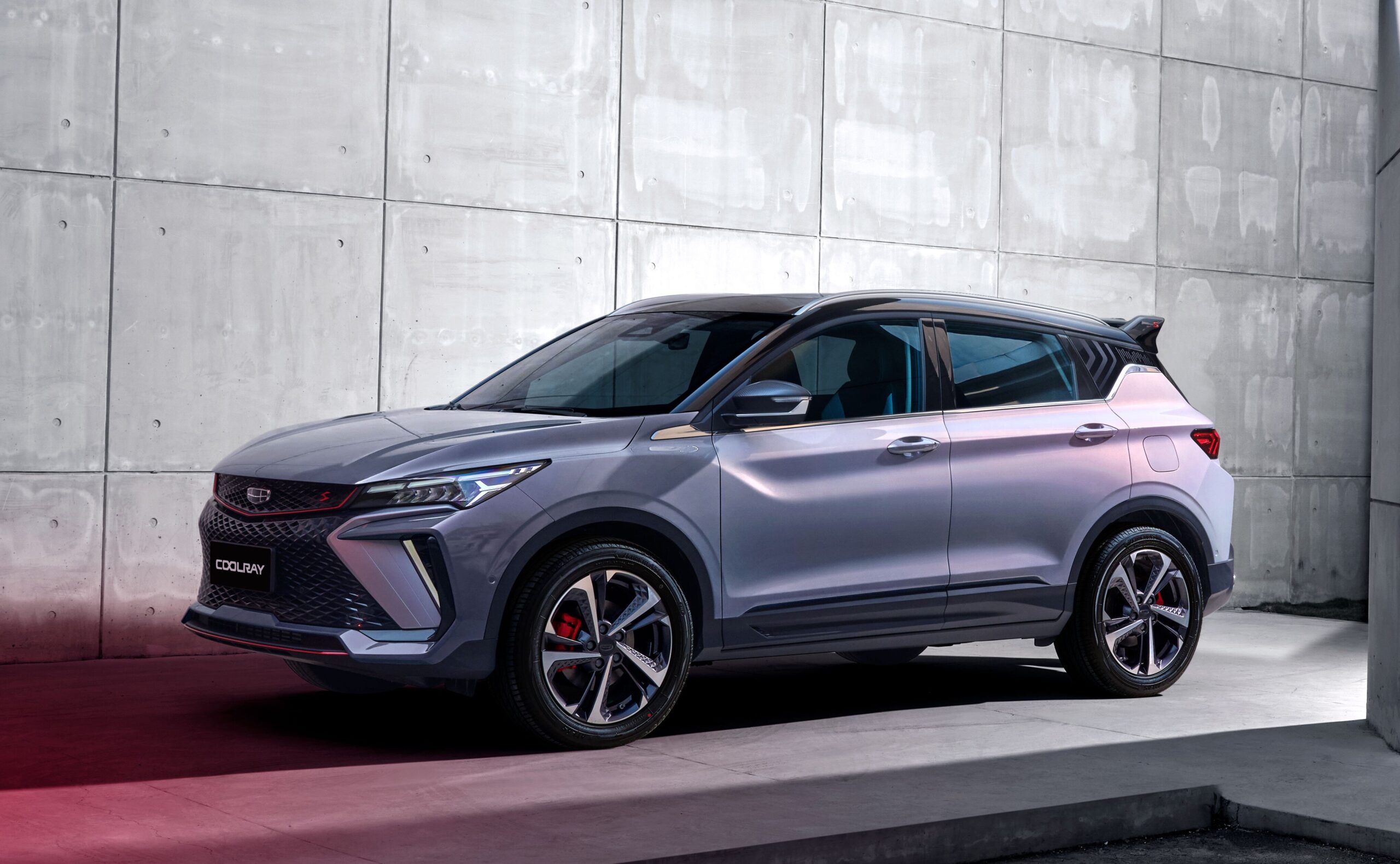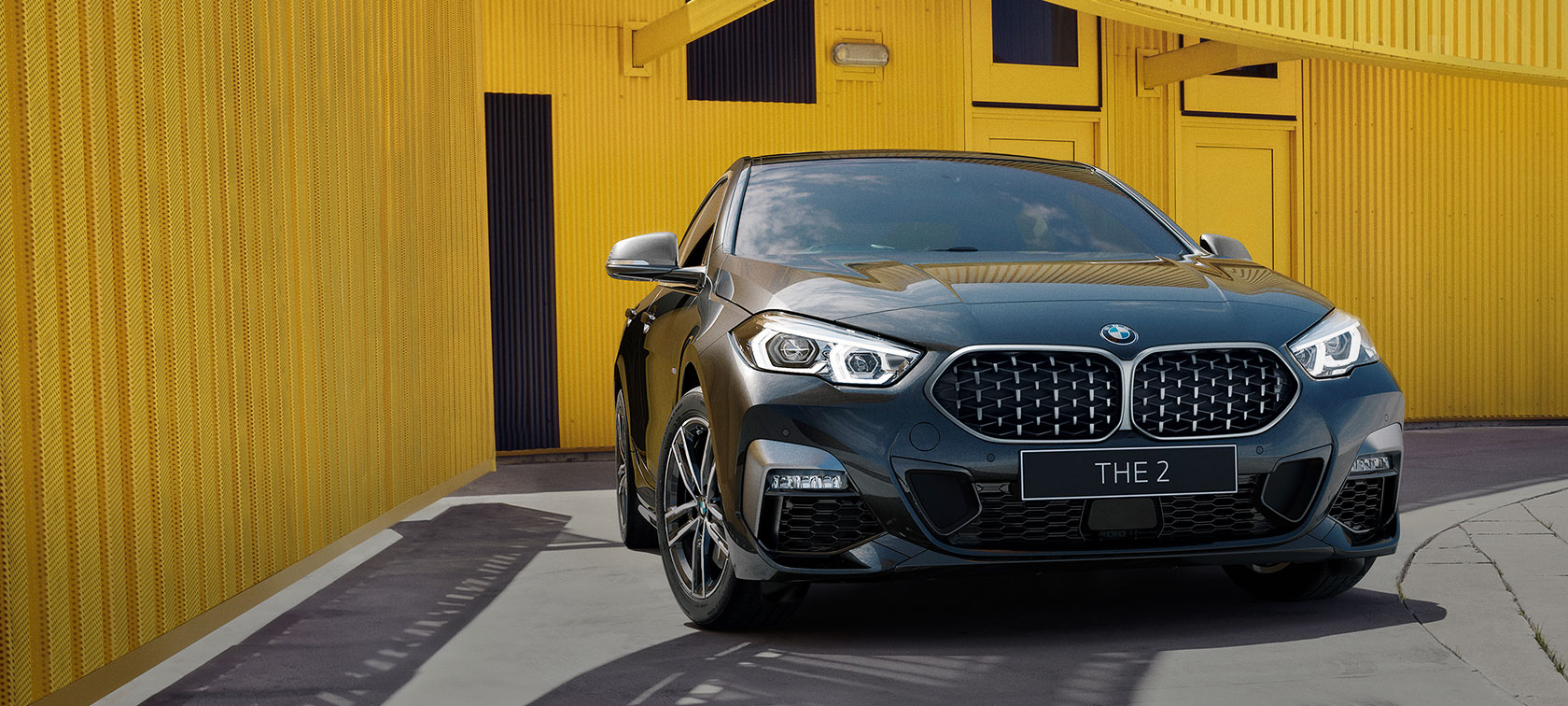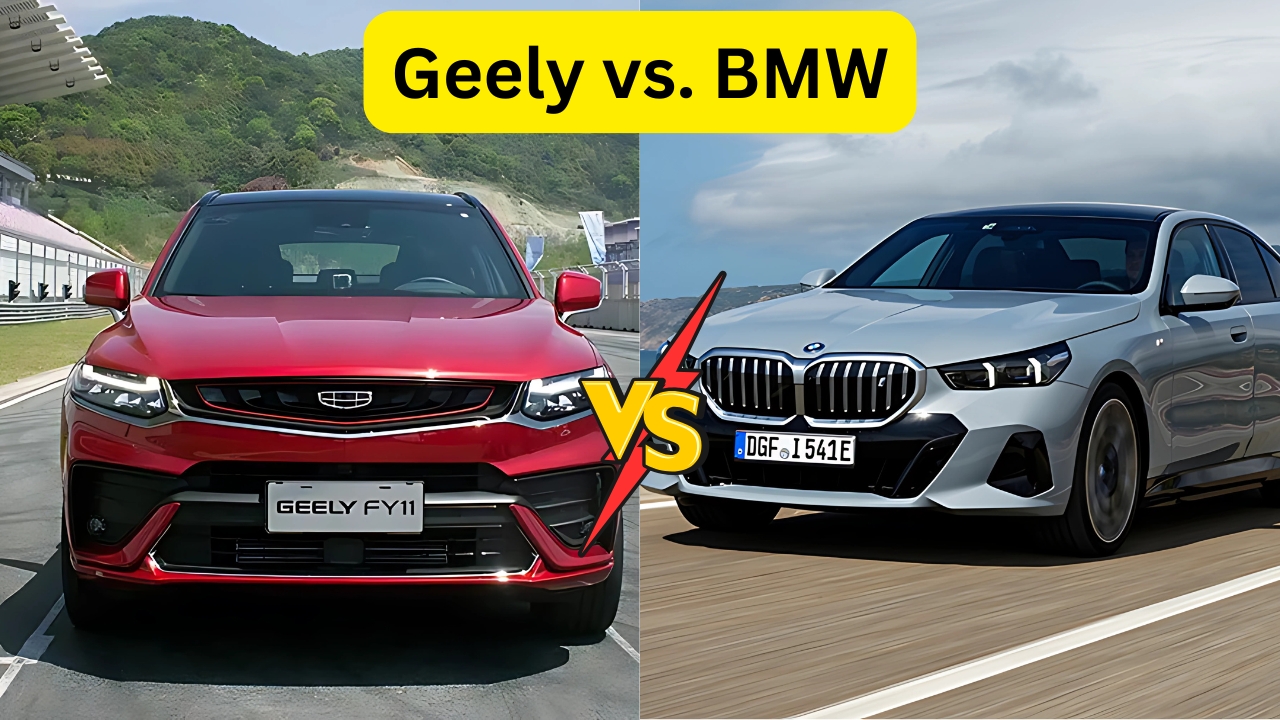BMW vs Geely : The automotive world has always been competitive, but rarely do we see fights over something as basic as what to call a car. Yet here we are, witnessing an epic showdown between two automotive giants over the right to use certain letters and numbers.
Geely, the ambitious Chinese automaker, has locked horns with BMW, the prestigious German manufacturer, in a trademark battle that could reshape how we think about SUV naming conventions. This isn’t just about letters on a badge – it’s about market dominance, brand recognition, and the future of automotive branding.
The Spark That Ignited the Fire
The controversy began when Geely decided to trademark their “EX5” nameplate in Australia. What seemed like a routine business procedure quickly turned into a legal battlefield when BMW caught wind of the application.
BMW’s opposition stems from their belief that the EX5 name is too similar to their iconic X5 SUV. The German automaker has been using the X-series naming convention for decades, building massive brand equity around these alphanumeric combinations.
Understanding the Players
BMW: The Established Champion

BMW has been crafting luxury vehicles since 1916, and their X-series SUVs represent some of their most successful models. The X5, launched in 1999, pioneered the concept of a premium mid-size SUV that could handle both city streets and off-road adventures.
The German manufacturer’s naming strategy is methodical and protective. They’ve built an entire ecosystem around the X-series, including models like the X1, X2, X3, X4, X6, and X7.
Geely: The Rising Challenger
Geely might seem like the underdog, but don’t be fooled by their relatively recent global expansion. Founded in 1986, this Chinese conglomerate has grown into a powerhouse that owns Volvo Cars, Polestar, and Lotus.
Their Galaxy sub-brand represents Geely’s push into the premium electric vehicle market. The EX5, known as the E5 in China, is a mid-size electric SUV that showcases Geely’s technological advancement.
The Legal Battlefield
Timeline of Events
The legal drama unfolded with precise timing that would make any courtroom thriller proud. December 17, 2024 marked the publication of Geely’s trademark acceptance by IP Australia.
BMW didn’t waste time responding. Exactly two months later, on February 17, 2025, they filed their opposition notice. The German automaker now has until July 29, 2025, to present compelling evidence supporting their case.
Beyond the EX5: A Broader Conflict
This fight extends beyond just one model name. Geely has also filed trademarks for “Geely EX2” and “Geely EX3”, which directly challenge BMW’s established X2, iX2, X3, and iX3 nameplates.
The pattern suggests this isn’t coincidental – it appears to be a calculated strategy to claim naming territory in the premium SUV segment. BMW sees this as a direct threat to their carefully cultivated brand identity.
What’s Really at Stake
Brand Recognition and Consumer Confusion
Brand recognition in the automotive industry is worth billions of dollars. When consumers hear “X5,” they immediately think of BMW’s premium SUV with its distinctive kidney grille and sporty handling.
Consumer confusion is the legal cornerstone of BMW’s argument. If Geely can use similar names, it might dilute BMW’s brand strength and confuse potential buyers in the marketplace.
Market Territory and Future Expansion
This battle is also about market territory. Australia represents a crucial testing ground for both manufacturers’ expansion strategies in the Asia-Pacific region.
Geely’s aggressive expansion into global markets means they need recognizable, memorable names for their vehicles. The EX-series represents their attempt to establish a premium electric SUV lineup that can compete with established players.
Technical and Design Comparison
BMW X5: The Established Standard
The BMW X5 has set the benchmark for premium mid-size SUVs for over two decades. Its combination of luxury, performance, and versatility has made it a status symbol among affluent buyers.
Recent innovations include advanced driver assistance systems, plug-in hybrid powertrains, and cutting-edge infotainment technology. The X5 continues to evolve while maintaining its core identity.
Geely EX5: The Electric Challenger
The Geely EX5 represents a different approach to premium SUVs. As a fully electric vehicle, it prioritizes sustainability and technological innovation over traditional combustion engine performance.
Advanced features include rapid charging capabilities, over-the-air software updates, and integrated connectivity systems that appeal to tech-savvy consumers seeking environmental responsibility.
Industry Implications
Naming Convention Wars
This dispute could trigger a wave of similar conflicts across the automotive industry. As traditional naming conventions become increasingly crowded, manufacturers might become more aggressive about protecting their intellectual property.
Future naming strategies will likely become more defensive, with companies filing broader trademark applications to prevent competitors from encroaching on their territory.
Electric Vehicle Branding Challenges
The rise of electric vehicles has created new branding challenges. Traditional automotive hierarchies are being disrupted by tech-savvy newcomers who approach naming differently.
Established manufacturers like BMW must balance tradition with innovation, while newer companies like Geely can be more flexible but need to establish instant recognition in crowded markets.
Global Trademark Complexities
Regional Variations and Strategies
Trademark law varies significantly between jurisdictions, creating complex challenges for global automakers. What’s acceptable in one country might be prohibited in another.
Geely’s strategy of using different names in different markets (E5 in China, EX5 elsewhere) demonstrates sophisticated understanding of these regional variations.
The Cost of Protection
Defending trademarks requires substantial resources and constant vigilance. BMW’s opposition filing represents just the beginning of what could be a lengthy and expensive legal process.
Global brand protection has become a significant cost center for major automakers, requiring dedicated legal teams and substantial ongoing investment.
Consumer Perspective
Brand Loyalty vs. Innovation

Consumers often develop strong emotional connections to specific brands and naming conventions. BMW’s X-series has cultivated decades of loyalty among premium SUV buyers.
However, younger consumers might be more open to new brands and naming conventions, especially if they offer superior technology or environmental benefits.
Value Proposition Comparison
The Geely EX5 typically offers more features and technology at a lower price point than comparable BMW models. This value proposition could outweigh any concerns about naming similarity.
Premium positioning remains BMW’s strength, but Geely’s improving quality and lower prices are attracting buyers who might have previously considered only established luxury brands.
Looking Ahead: Future Scenarios
Potential Outcomes
Several scenarios could emerge from this legal battle. BMW might successfully force Geely to rename their models, establishing a precedent for protecting alphanumeric naming conventions.
Alternatively, Geely might prevail, opening the door for more aggressive naming strategies from Chinese and other emerging automakers seeking to challenge established players.
Industry Evolution
This dispute reflects broader changes in the automotive landscape. Traditional boundaries between regions, technologies, and market segments are blurring rapidly.
Future competition will likely intensify as more manufacturers fight for recognition in increasingly crowded global markets where naming rights can make or break a product launch.
The Broader Context
China’s Automotive Ambitions
Geely’s trademark strategy reflects China’s broader ambitions to establish its automotive brands as global players. This isn’t just about one company – it’s about an entire industry’s aspirations.
Chinese manufacturers are increasingly confident about challenging established European and American brands directly, rather than competing solely on price.
Technology vs. Tradition
This battle symbolizes the tension between traditional automotive values and emerging technological priorities. BMW represents heritage and established luxury, while Geely embodies innovation and disruption.
Market evolution will ultimately determine which approach resonates more strongly with consumers seeking their next premium SUV.
Frequently Asked Questions
What is the main dispute between Geely and BMW? BMW opposes Geely’s trademark application for “EX5” claiming it’s too similar to their X5 nameplate.
When will this trademark dispute be resolved? BMW has until July 29, 2025, to provide evidence supporting their opposition to Geely’s trademark application.
Are there other naming conflicts between these companies? Yes, Geely has also filed for “EX2” and “EX3” trademarks which could conflict with BMW’s X2, X3, and related models.

